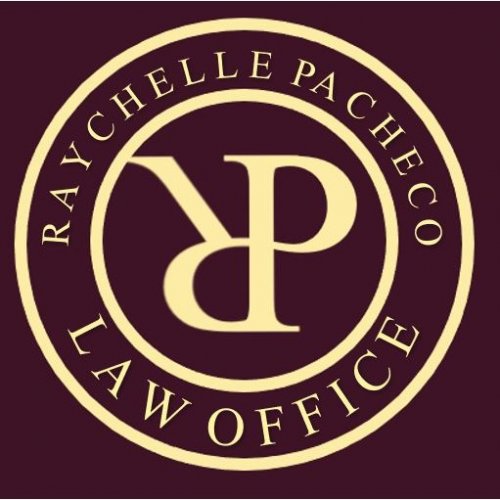Best Probate Lawyers in Philippines
Share your needs with us, get contacted by law firms.
Free. Takes 2 min.
Or refine your search by selecting a city:
List of the best lawyers in Philippines

Dagsaan Monterde Castillo Law and Notary Public (DMC LAW)
15 minutes Free ConsultationAbout Probate Law in Philippines
Probate law in the Philippines governs the legal process of administering the estate of a deceased person. This process involves proving the validity of a will, if one exists, and ensuring that the deceased person's debts are paid. Subsequently, any remaining assets are distributed to the rightful heirs. The probate process is crucial in preventing disputes among beneficiaries and safeguarding the deceased's intentions as expressed through their will.
Why You May Need a Lawyer
Engaging a lawyer in probate matters can be advantageous for several reasons:
- Complexity of Legal Procedures: Probate involves various complex procedures and paperwork. A lawyer can help navigate these intricacies efficiently.
- Dispute Resolution: If there are disagreements among heirs or questions about the will's validity, having legal representation can help mediate and resolve conflicts.
- Estate Tax Considerations: A lawyer can assist in understanding and mitigating any taxes that may apply to the estate, ensuring compliance with existing laws.
- Protection of Interests: Lawyers can ensure that the rights and interests of all parties are protected throughout the probate process.
Local Laws Overview
Key aspects of probate law in the Philippines include:
- Intestate and Testate Succession: If a person dies without a will, their assets will be distributed according to intestate succession laws outlined in the Civil Code. Conversely, testate succession occurs when there is a valid will.
- Notarial and Holographic Wills: The Philippines recognizes both notarial (witnessed) and holographic (handwritten) wills. Each type has specific legal requirements for validity.
- Role of Executors and Administrators: Executors are typically named in a will to administer the estate. If there is no will, the court can appoint an administrator.
- Probate Court Jurisdiction: The Regional Trial Courts have jurisdiction over probate proceedings.
- Estate Settlement Deadlines: Deadlines exist for filing estate taxes and other legal requirements which must be adhered to avoid penalties.
Frequently Asked Questions
What is the purpose of probate in the Philippines?
The primary purpose of probate is to validate a will, settle the estate's debts, and distribute the remaining assets to the beneficiaries or heirs.
How long does the probate process take in the Philippines?
The duration of probate varies depending on estate complexity and potential disputes, but it can generally take several months to a few years.
Can I contest a will during probate proceedings?
Yes, heirs or interested parties can contest a will if they believe it to be invalid due to factors such as incapacity or undue influence on the deceased.
What happens if there is no will?
If no will exists, the estate will be distributed according to the rules of intestate succession, prioritizing the surviving spouse, legitimate children, and other relatives.
Are all assets subject to probate?
Not all assets are subject to probate. Joint accounts, life insurance, and pension benefits may pass outside of probate if proper beneficiary designations exist.
Who is responsible for paying the estate's debts?
The estate itself is responsible for settling any debts. Executors or administrators handle the payment using estate assets before distribution.
Can probate be handled without a lawyer?
While it is possible to handle probate without a lawyer, legal advice is often beneficial to ensure compliance with laws and minimize potential disputes.
What taxes are involved in probate?
Estate taxes may apply depending on the estate's value. SC has deadlines for filing and payment, with possible penalties for noncompliance.
Is probate necessary for small estates?
Small estates may qualify for summary settlement procedures, which are typically simpler and faster than full probate.
What happens to the estate if the executor or administrator does not act?
If the appointed executor or administrator fails to act, the court can appoint another individual to ensure the estate is properly managed and distributed.
Additional Resources
For further assistance, consider reaching out to these resources:
- Integrated Bar of the Philippines (IBP): A professional association that can help locate legal practitioners specializing in probate.
- Philippine Judicial Academy: For educational resources regarding probate court procedures.
- Bureau of Internal Revenue (BIR): For information on estate tax requirements.
Next Steps
If you require legal assistance with probate, consider these steps:
- Consultation: Schedule an initial consultation with a lawyer experienced in probate matters to discuss your specific situation.
- Documentation: Prepare and organize necessary documents, including the will, death certificate, and asset details.
- Evaluate Options: Discuss potential legal options with your lawyer, understanding the implications and possible outcomes.
- Engagement: Agree to an arrangement with your chosen lawyer to formally engage their services in handling your probate case.
Lawzana helps you find the best lawyers and law firms in Philippines through a curated and pre-screened list of qualified legal professionals. Our platform offers rankings and detailed profiles of attorneys and law firms, allowing you to compare based on practice areas, including Probate, experience, and client feedback.
Each profile includes a description of the firm's areas of practice, client reviews, team members and partners, year of establishment, spoken languages, office locations, contact information, social media presence, and any published articles or resources. Most firms on our platform speak English and are experienced in both local and international legal matters.
Get a quote from top-rated law firms in Philippines — quickly, securely, and without unnecessary hassle.
Disclaimer:
The information provided on this page is for general informational purposes only and does not constitute legal advice. While we strive to ensure the accuracy and relevance of the content, legal information may change over time, and interpretations of the law can vary. You should always consult with a qualified legal professional for advice specific to your situation.
We disclaim all liability for actions taken or not taken based on the content of this page. If you believe any information is incorrect or outdated, please contact us, and we will review and update it where appropriate.
Browse probate law firms by city in Philippines
Refine your search by selecting a city.
















